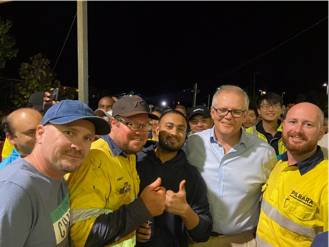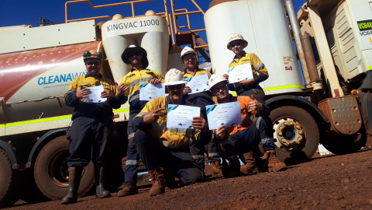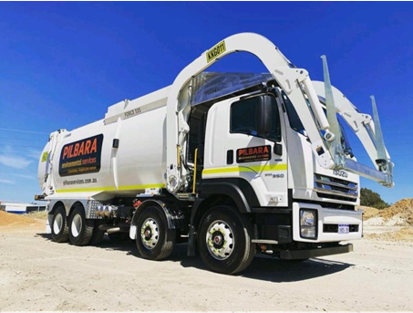Due to our model, we have doubled our activity and associated revenues from last year to this year
Due to our model, we have doubled our activity and associated revenues from last year to this year
A waste management joint venture between Cleanaway and a female indigenous-owned business, King Kira Group (KKG), is providing opportunities for Aboriginal and Torres Strait Islander people as it grows strongly in the resource-rich Pilbara region of Western Australia.
Pilbara Environmental Services (PES) doubled its operational activity and associated revenues in the last financial year and has strong prospects to win more business, according to joint venture manager Tim Hyatt.
However, these opportunities also bring challenges in finding enough people to service new contracts as potential candidates are being absorbed by WA’s booming mining industry.
“We are grappling with the pains of that – recruiting and retaining staff,” Tim says.


Pictured: The PES team and successful recruits at work
PES is a joint venture (JV) with KKG, a business connected to the Nyiyaparli and Plyku Aboriginal groups and the Kariyarra and Ngarluma peoples and owned by KKG Director Tammy O’Connor.
The success of the JV is one of the key achievements of the ‘Innovate’ Reconciliation Action Plan 2018–2020 in which we committed to continuing to improve diversity in our supply chain by utilising the services and developing the capacity of Aboriginal and Torres Strait Islander businesses.
The JV is a key aspect of the RAP Plan as it develops into its next phase.
PES provides solid and liquid waste management and recycling services, as well as industrial cleaning services primarily to mining, oil and gas, government, and infrastructure industries in the Pilbara.
It has a flexible workforce of about 90 people and a modern fleet of about 50 trucks and ancillary equipment.

Pictured: One of the modern trucks in service in the region
Under the JV agreement, KKG and Cleanaway collaborate to provide the people and fleet to customers under the most appropriate model for the work required.
Tim says mining companies and tier one contractors are increasingly recognising the importance and benefits of supporting local indigenous communities and awarding contracts to businesses such as PES, which can draw on the resources required to reach common diversity objectives.
“Due to our model, we have doubled our activity and associated revenues from last year to this year,” he says.
He estimates contracts offering significant growth will be coming up for tender across solid waste and industrial services over the next two to three years as mining and resources companies recognise the ongoing development of viable business alternatives and go to tender.
“If we can win 30 to 40 percent of that market, we would be pretty happy. That would be as much as we could handle in the next three years. That’s significant growth in current market conditions,” he says.
“We are constantly looking for new ways to maintain and grow our operations while the booming mining sector continues to absorb labour and resources. Mining is a higher paid industry, which at the moment is focused on safe and sustainable productivity increases to meet the forecast global need for Western Australia’s resources.
“This never happened in the last boom. Mining companies are saying ‘we will take you on with little to no skills and train you’, which results in the pool of people we aim to attract getting smaller.
“But we have good flexible working conditions to help our people get home to their families, and the business maintains its personal feel through our shareholders and Board whilst never losing sight of our people’s health and safety as a priority. These things make a difference.”
PES provides waste management services to iron ore miner Fortescue Metals Group (FMG) at its Solomon, Christmas Creek/Cloudbreak and Iron Bridge iron ore mines and port and rail assets in Port Hedland, as well as an ever growing customer base in the wider resources industry in the Pilbara.
It also works for iron ore miner Atlas Iron and FMG contractors Laing O’Rourke, Civmec and NRW Holdings.
The JV has had a number of name changes since it was established in 2010, with Cleanaway buying the founding 50 percent shareholder Toxfree in 2018 and KKG increasing its shareholding to 50 percent nearly two years ago.
“Formerly known as PTK, PTW and originally PTES, PES – Pilbara Environmental Services is the new brand that the Board of Directors will now stick with for the foreseeable future as it is more closely aligned with the diverse range of services on offer from the business,” Tim says.
Contact us to learn more about how we’re making a sustainable future possible for communities and businesses across Australia.